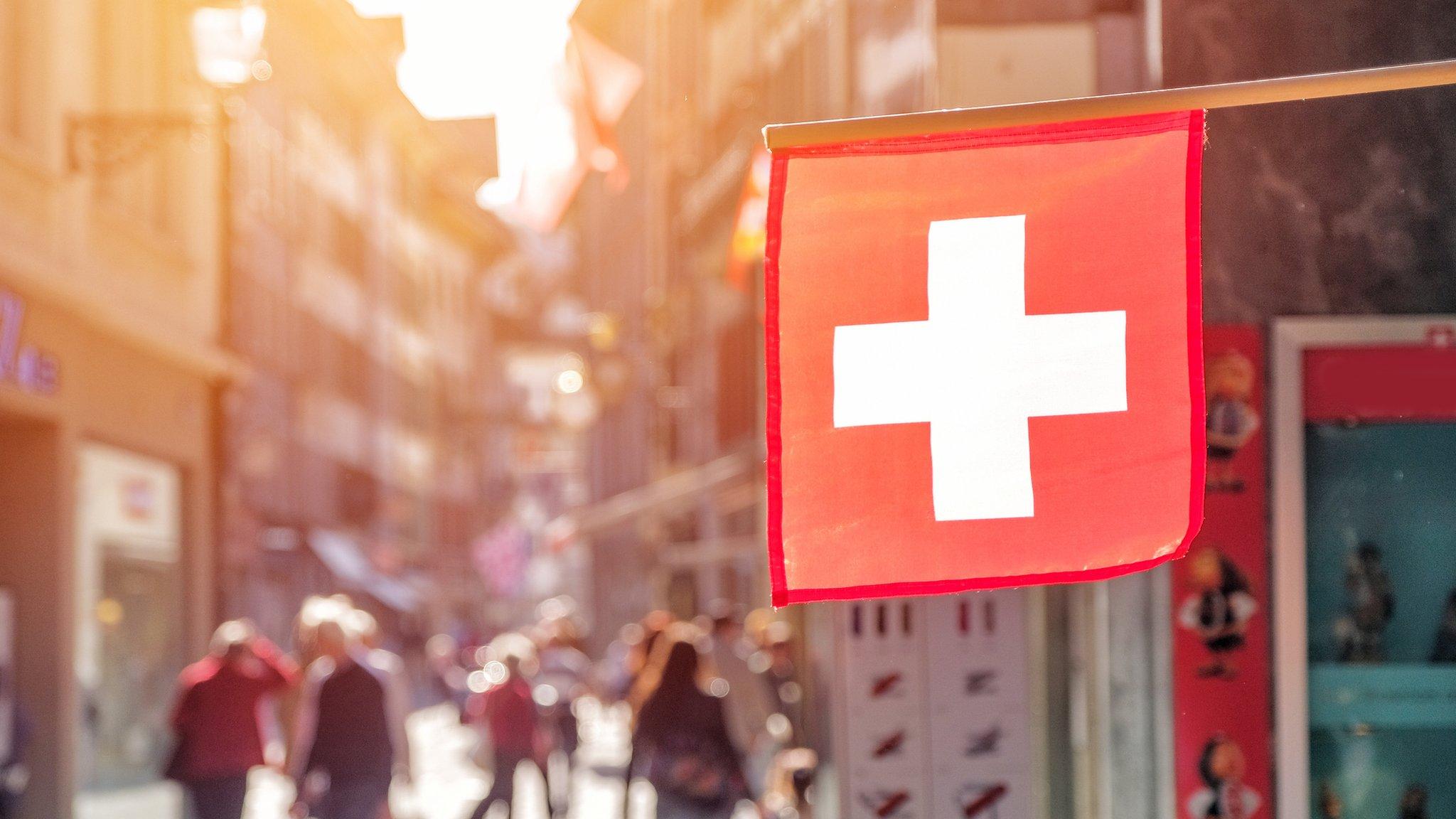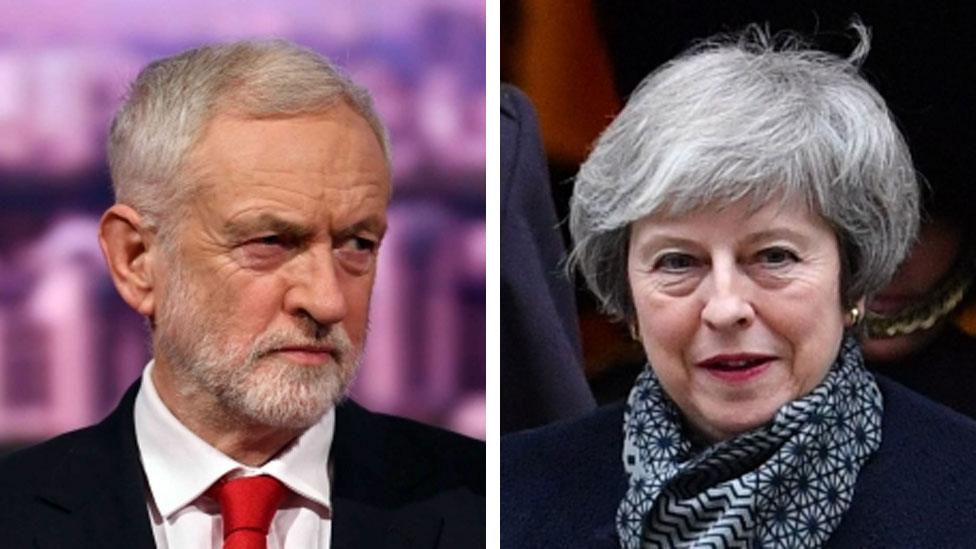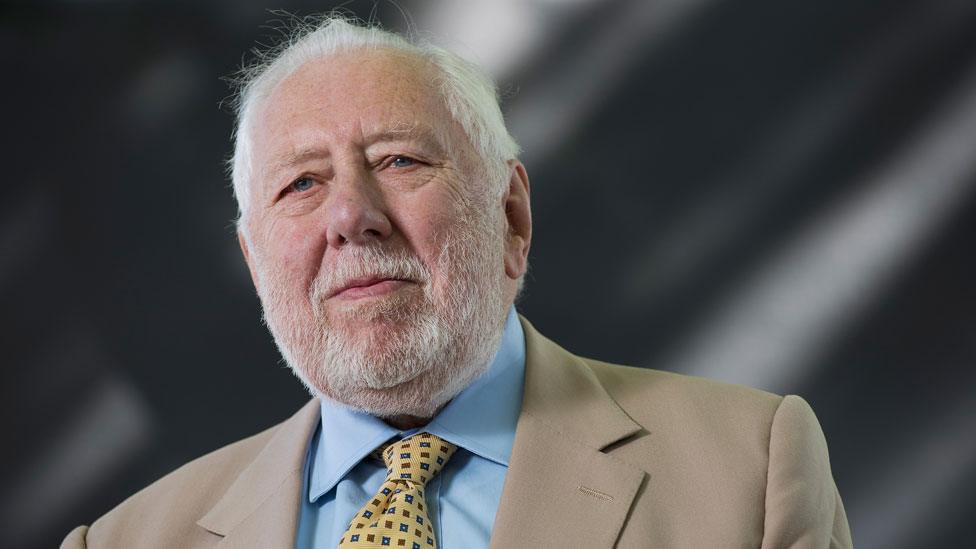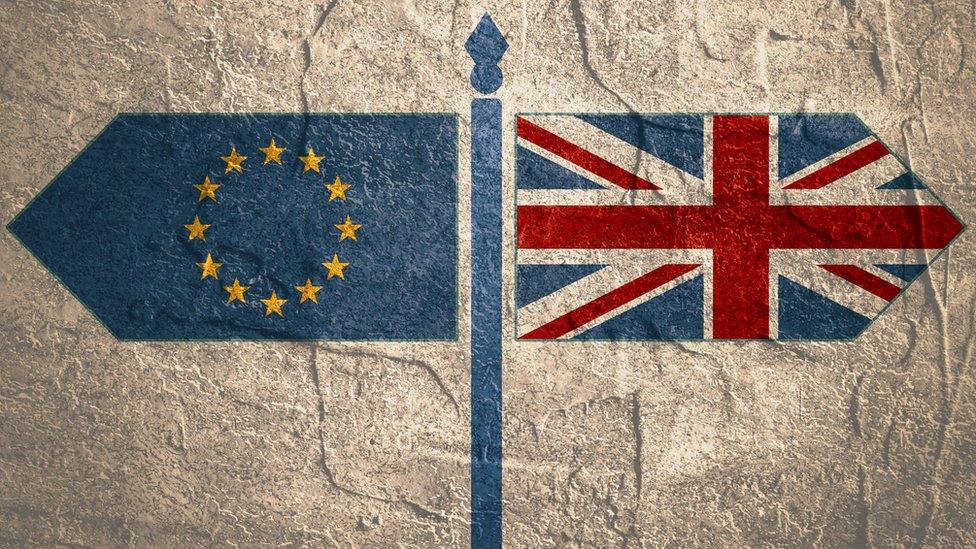Brexit: 'Basic questions unanswered' on Swiss trade deal
- Published

Ministers must clarify the UK's post-Brexit relationship with Switzerland and up to 70 non-EU countries, a Commons committee chairman has said.
SNP MP Angus MacNeil said the "most basic questions" about the relationship remained unanswered.
Last month, International Trade Secretary Liam Fox announced a deal to allow British and Swiss businesses to continue trading freely after Brexit, external.
The deal matches current arrangements "as far as possible", ministers say.
Mr MacNeil, chairman of the international trade committee, raises the prospect that the freedom of movement of people - which is currently a condition of the deal between the EU and Switzerland - would have to be accepted by the UK.
He is also seeking clarification on what aspect of the current relationship with Switzerland are replicated and whether the agreement will allow UK-based firms to continue trading into Switzerland on the "same basis as they do today".
The UK is due to leave the EU on 29 March. A crunch vote in the Commons on the prime minister's withdrawal deal takes place on Tuesday.
Last month, the government announced that it had approved the transition of a trade agreement with the Swiss Federal Council that will come into effect in January 2021 or on 29 March this year if the UK leaves the EU with no deal.
Switzerland is not a member of the EU but is part of the bloc's single market.

Analysis
By Joe Miller, BBC business correspondent
Member states of the European Union don't just benefit from trading freely among themselves. Over the years, Brussels has negotiated almost 40 agreements with dozens of countries around the world, including Mexico and South Korea, to bring down tariffs and reduce regulatory barriers - making it easier for goods and services to cross borders.
The UK currently trades using those agreements, and last year, Mr Fox told the BBC that he hoped Britain would replicate all of those agreements after Brexit, and that 70 countries had already agreed to do so, in principle.
In December, Mr Fox told parliament of his first triumph - an approved deal with Switzerland.
But few details of that deal have been provided, and the chairman of the international trade committee's concern over the accord points to a larger problem.
All 39-odd agreements need to pass through parliament - and if they are to be ready for a possible no-deal Brexit on 29 March, that leaves just 11 weeks to avoid disruption to much of British business.

In a letter to Mr Fox, Mr MacNeil called for clarification on the UK's future trade relationship with Switzerland.
Commenting on his letter, Mr MacNeil said: "Switzerland's access to the single market requires it to accept both freedom of movement and a significant proportion of EU law.
"It is based not only on a trade agreement eliminating tariffs, but also on a myriad of other trade-related agreements.
"Blithe assurances of progress will simply not suffice as the clock ticks down to Brexit on 29 March."
Mr MacNeil added that the government was running out of time to adopt the "other 39 or so existing EU trade agreements".
A Department for International Trade spokeswoman said: "The UK government and the Swiss Federal Council have approved the transition of a trade agreement that replicates the existing EU-Switzerland arrangements as far as possible.
"This will allow businesses to continue trading freely after the UK leaves the European Union."
- Published13 January 2019

- Published12 January 2019

- Published12 January 2019

